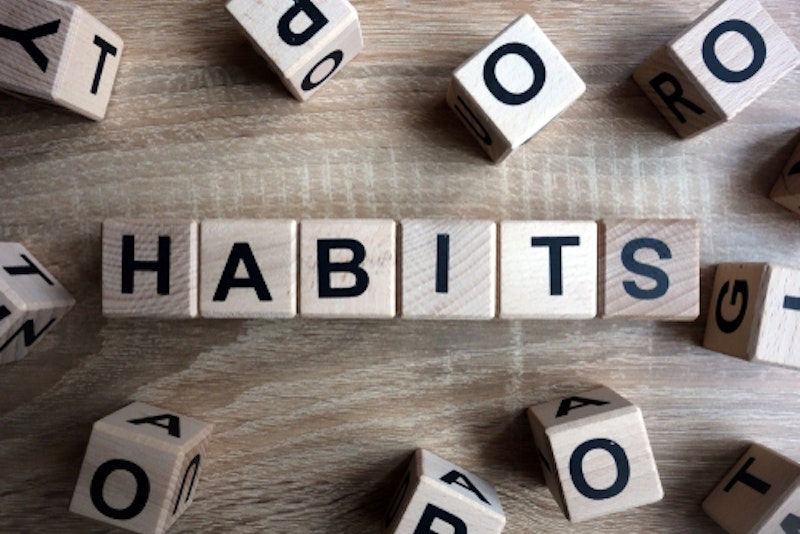Study Notes
What is habitual consumption and what causes it?
- Level:
- AS, A-Level, IB
- Board:
- AQA, Edexcel, OCR, IB, Eduqas, WJEC
Last updated 24 Jul 2023
Habitual consumption, in economics, refers to a pattern of repeated and regular consumption of goods and services by individuals or households. It occurs when people develop consistent habits in their consumption choices, often buying the same products or services repeatedly over time, without much consideration for alternative options. Often habitual consumption leads to a fall in the coefficient of price elasticity of demand for a product. Consumers become less sensitive to price changes.

Causes of Habitual Consumption:
- Habit Formation: Habits are formed through repeated actions and experiences. When individuals consume a particular product or service regularly, it becomes a habit, making them more likely to continue purchasing it in the future.
- Brand Loyalty: Strong brand loyalty can lead to habitual consumption. Consumers may develop an emotional attachment or trust in a particular brand, which leads them to stick with that brand even when similar alternatives are available.
- Convenience: Habitual consumption can be driven by convenience. People might continue to buy the same products or services because they are readily available, easily accessible, and require minimal effort to purchase.
- Inertia and Cognitive Effort: Breaking habits requires cognitive effort. Many consumers prefer to stick to their habitual choices to avoid the mental burden of researching and evaluating new options. They follow tried and tested heuristics in their choices.
- Social Influence: Peer pressure and social norms can influence habitual consumption. People may continue to buy certain products or services because their friends, family, or community do the same.
Habitual consumption can have both positive and negative effects. On the positive side, it can save us time and effort, and it can make us feel more comfortable and secure. On the negative side, it can lead to us making sub-optimal choices, and it can make us less open to new experiences.

Real-World Examples:
- Coffee Consumption: Many individuals have a habitual consumption of coffee, often buying it from the same coffee shop or brand every day, even when other coffee shops are available.
- Fast Food: Habitual consumption of fast food is widespread, with many people repeatedly choosing the same fast-food chain for convenience and familiarity.
- Smartphone Brands: Some consumers are loyal to a specific smartphone brand and upgrade to the latest model whenever it is released, despite the availability of other competitive brands.
- Household Cleaning Products: People often stick to the same brand of household cleaning products because they have become accustomed to their effectiveness and trust the brand's quality.

How is habitual consumption linked to ideas from behavioural economics?
Habitual consumption is closely linked to ideas from behavioural economics as it involves understanding and analyzing how individuals make decisions and form consumption habits in the real world. Behavioural economics is a field that combines insights from psychology and economics to explain and predict human behaviour in economic contexts.
Here's how habitual consumption is connected to some key ideas from behavioural economics:
- Bounded Rationality: Behavioural economics suggests that individuals often make decisions under constraints of bounded rationality, meaning they have limited cognitive abilities to process information and consider all available options. When faced with numerous choices, people may default to habitual consumption as it requires less cognitive effort than exploring new alternatives.
- Status Quo Bias: The status quo bias refers to the tendency of individuals to stick with their current choices or default options. Habitual consumption is a manifestation of this bias, where people continue to buy the same products or services simply because they have been doing so in the past, even if it may not be the optimal decision.
- Anchoring and Framing: Behavioural economics highlights that the way choices are presented or "framed" can significantly influence decisions. Habitual consumption can be influenced by anchoring effects, where the first encounter with a product or service becomes the reference point for future decisions. Once a particular product becomes a habitual choice, it serves as the anchor for future purchases.
- Loss Aversion: Behavioural economics also emphasizes that individuals tend to be more sensitive to losses than gains. Breaking a consumption habit might be perceived as a loss of convenience or comfort, leading people to avoid the potential negative feelings associated with change.
- Social Influence and Herding: Habitual consumption can be influenced by social factors, as individuals often imitate the behavior of others (herding) or adhere to social norms. Behavioral economics recognizes the significant impact of social influence on decision-making, including consumption choices.
- Time Inconsistency: Behavioral economics explores the concept of time inconsistency, where individuals' preferences change over time, leading to inconsistency in decision-making. Habitual consumption can be seen as a result of time inconsistency, where individuals might choose immediate gratification and stick to familiar consumption patterns rather than making long-term optimal choices.
- Sunk Cost Fallacy: The sunk cost fallacy is the tendency to consider past investments (money, time, or effort) when making current decisions, even when these costs are irrecoverable. Habitual consumption can be influenced by the sunk cost fallacy if people continue to buy a product or service because they have invested in it in the past.
You might also like

Behavioural Economics: Smoking Kids
23rd June 2012

Why you shouldn't copy your classmates!
16th May 2015

Perfect Game Theory Starter Activity
13th August 2015

Paul Ormerod: Are the Markets Telling the Truth?
28th January 2016
Nurofen fined heavily for mis-leading consumers
16th December 2016
Criticisms (Behavioural Economics)
Study Notes
Minimum Alcohol Pricing (Revision Essay Plan)
Practice Exam Questions